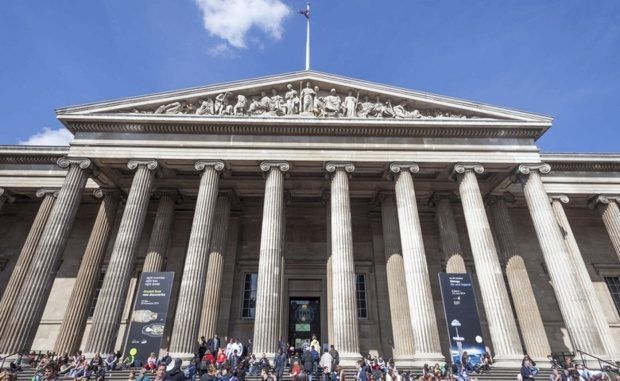
The British Museum in London is keeping a precious artifact taken illegally from Syria until the civil war in the country is over.
Neil MacGregor the museum director said the museum is trying to safeguard antiquities stolen from war zones.
“We are holding an object we know was illegally removed from Syria and one day it will go back,” British Museum director Neil MacGregor told The Times.

BYPASS THE CENSORS
Sign up to get unfiltered news delivered straight to your inbox.
You can unsubscribe any time. By subscribing you agree to our Terms of Use
The museum has not revealed which Syrian artifact it is holding.
A new wing of the museum is due to open in 2018 and will house artifacts from the war torn Middle East.
RT reports: MacGregor, who is stepping down as museum director at the end of 2015, called on the British government to sign an international convention to protect cultural artifacts.
However, the British Museum itself has come under fire in recent years for its continued refusal to return the world-famous Elgin Marbles to Greece.
Speaking to the Times, MacGregor said: “We are playing a significant part in holding objects that have been illegally exported.”
“We did that in Afghanistan and are now returning them. We are holding an object we know was illegally removed from Syria and one day it will go back.”
The widespread destruction of ancient cultural artifacts in the Middle East by Islamic State (formerly ISIS/ISIL) has prompted outcry across the world.
The group reportedly bulldozed the ancient city of Numrud in Iraq in March, destroying an archeological site dating back more than 3,000 years.
ISIS claimed the monuments were idolatrous, because they were once worshipped instead of Allah.
In response to the demolition, UNESCO Director General Irina Bokova said the “deliberate destruction of cultural heritage constitutes a war crime.”
Syria became a focal point for archaeological preservation this month when ISIS began marching on the ancient city of Palmyra, a UNESCO World Heritage Site.
A group of Syrian archeologists, academics and locals rushed to hide museum pieces in the days before the city fell to ISIS on May 21.
Dubbed Syria’s “Monuments Men” in reference to the soldiers and academics who saved European art from the Nazis during the Second World War, the volunteers reportedly risked their lives to catalogue and bury precious artifacts.
“The question of whether we should help with the conservation and preservation of another country’s heritage is serious,” MacGregor said.
“There is a significant international agreement, the Hague Convention about the protection of cultural property in war zones. Only one country in the Security Council hasn’t ratified it, the UK.”
A spokesman for the Department for Culture, Media and Sport said the UK government would seek to legislate on the convention “as soon as parliamentary time allows.”
The British Museum has faced criticism in recent years for its refusal to return a collection of stone objects to Greece known as the Elgin Marbles.
The assortment of sculptures, inscriptions and architectural features were acquired by Lord Elgin in the early 19th century.
Elgin claimed to have permission from the Ottoman Empire, which ruled Greece at that time.
The Greek government wants to return the marbles to their original historical environment.
However the British Museum has rejected Greece’s appeals, claiming that if the Elgin Marbles were returned it would open the door to similar applications from other countries.


